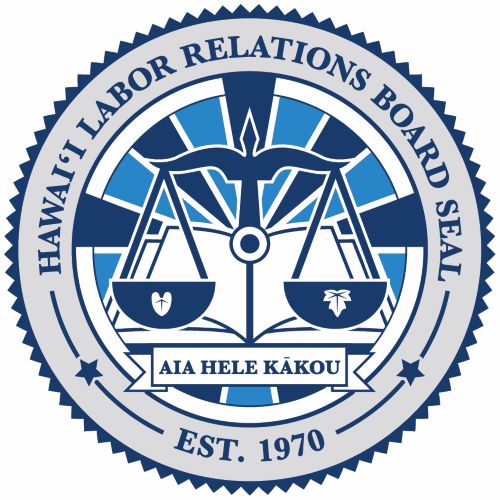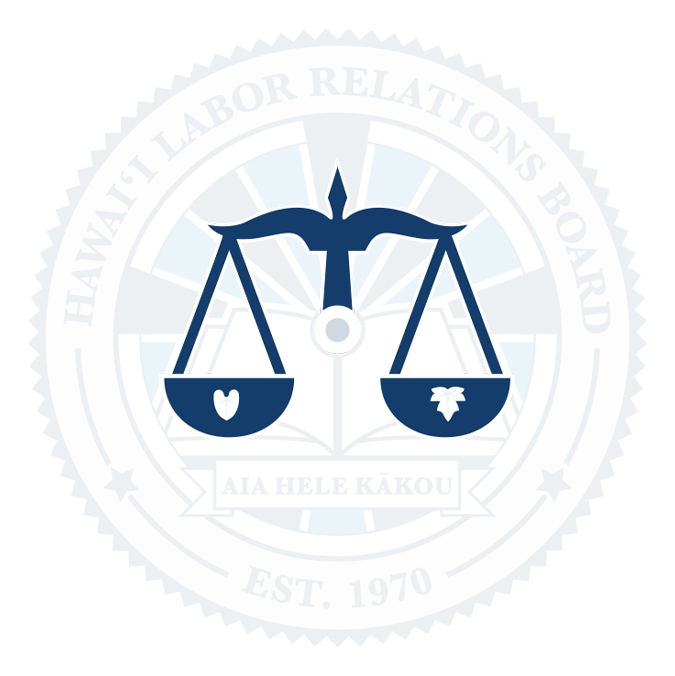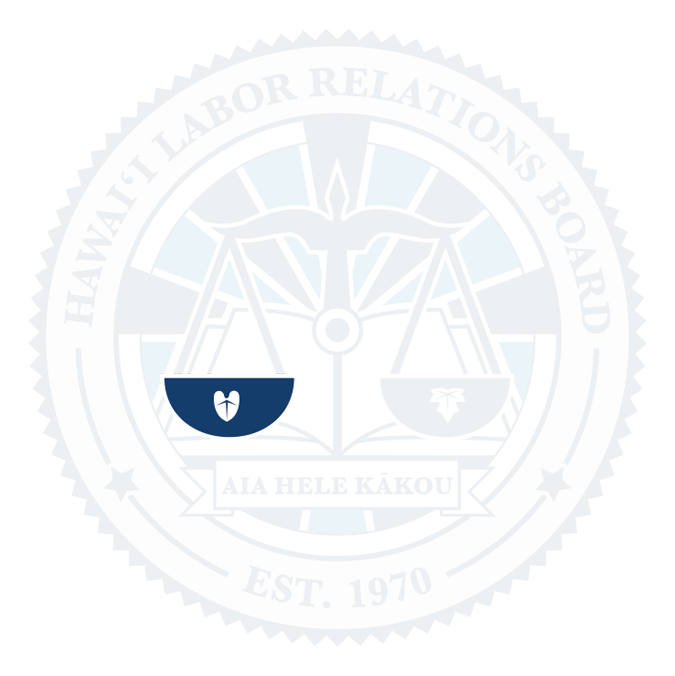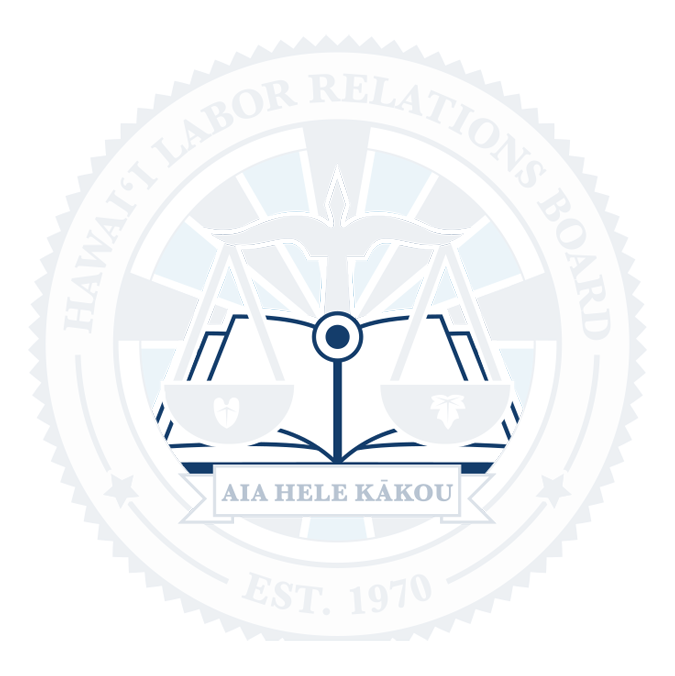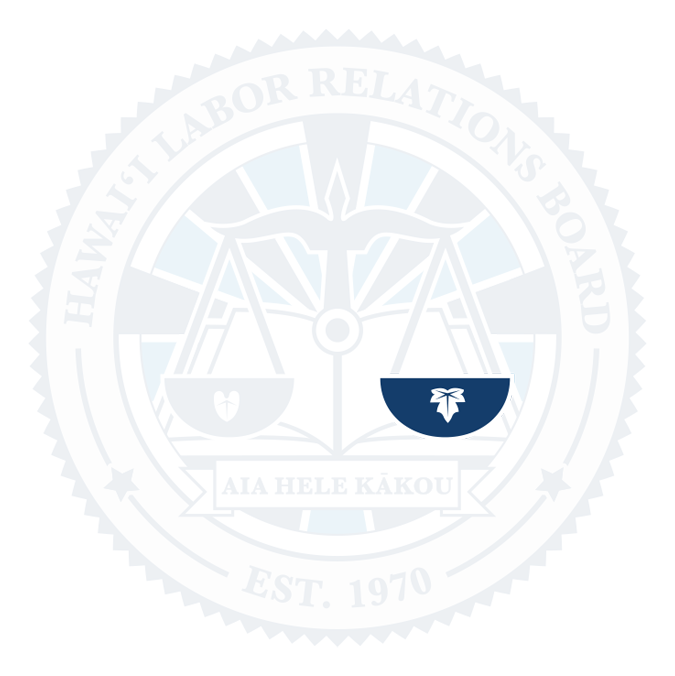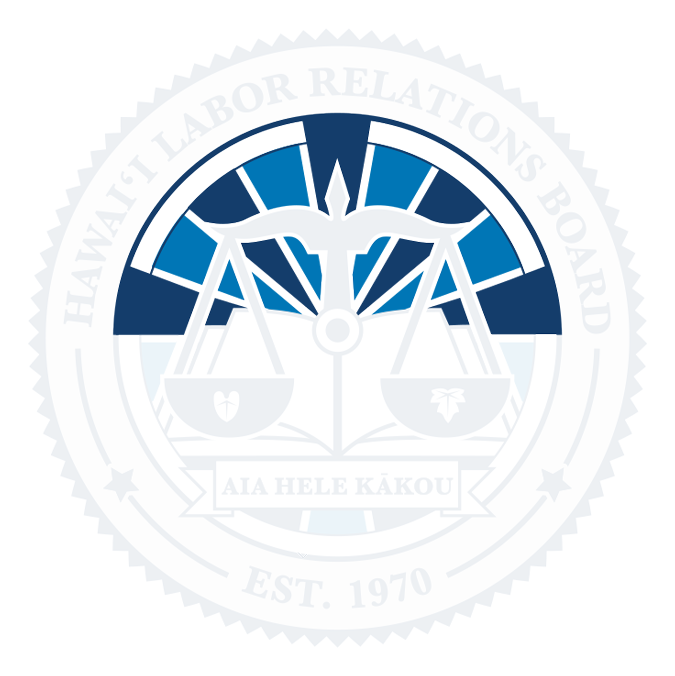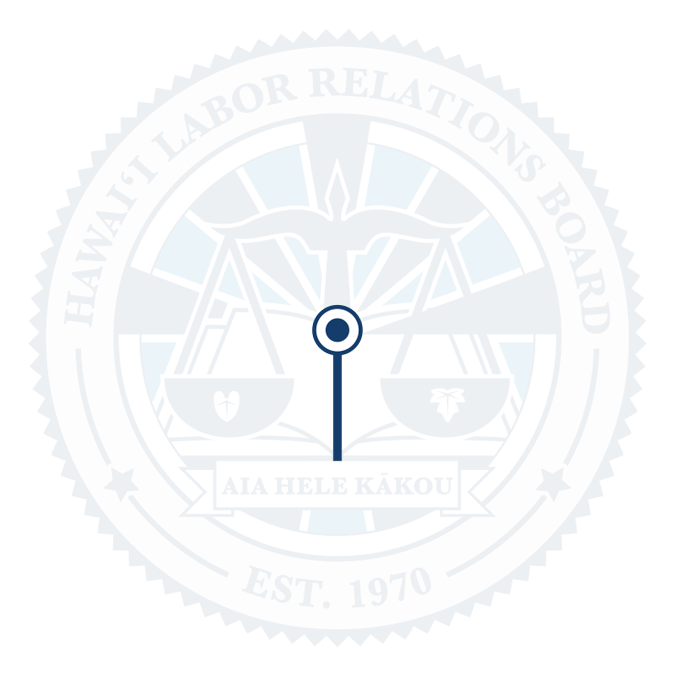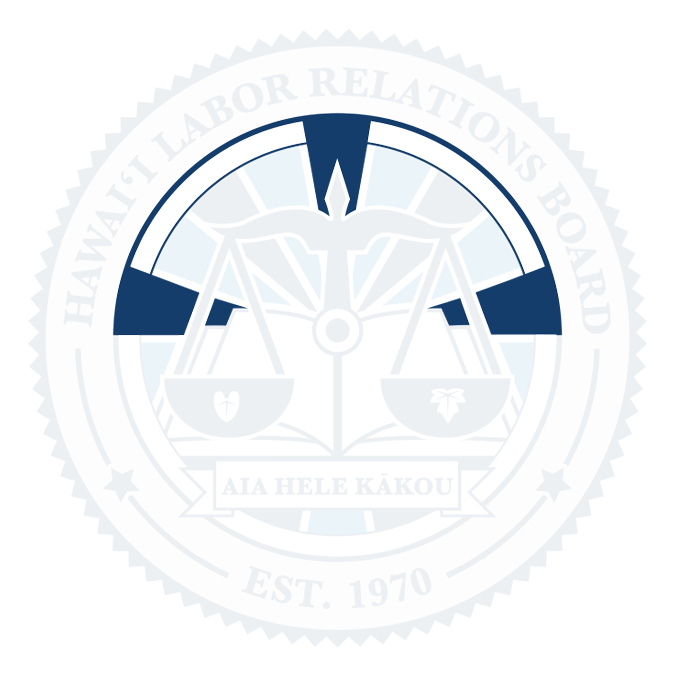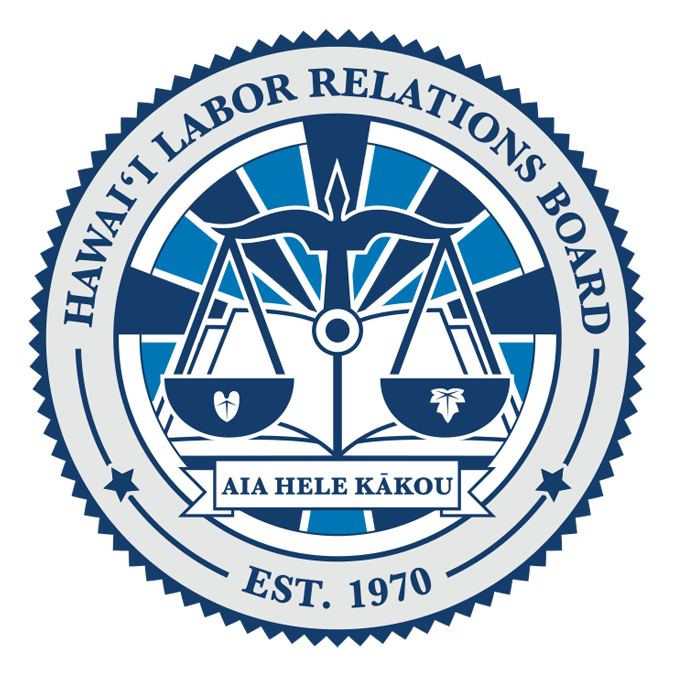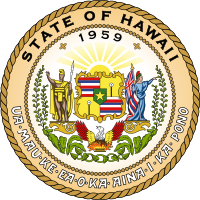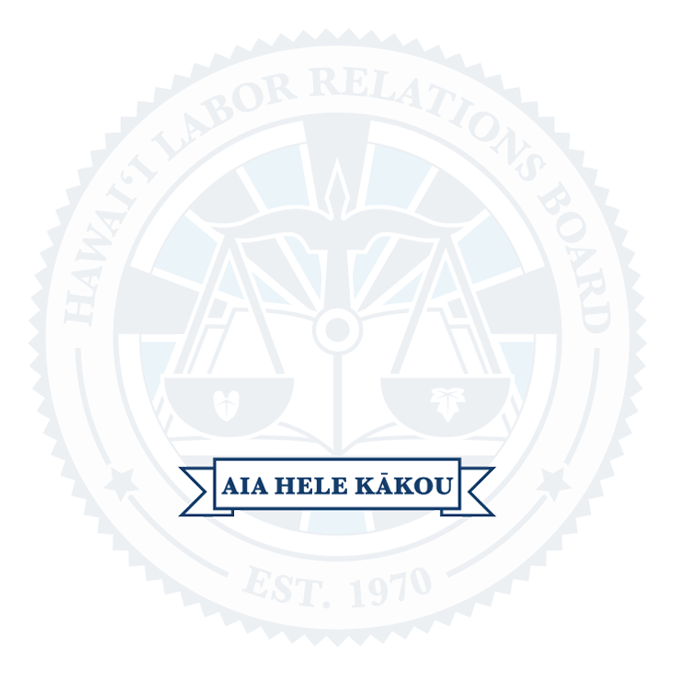
MOTTO: TRUST & ADHERE
Aia Hele Kakou means to trust and adhere in Olelo Hawaii. Its foundation is based upon the idea that the Hawaii Labor Relations Board upholds its mission and duty to the people of Hawaii in ensuring that the Hawaii Employment Relations Act, Collective Bargaining in Public Employment, and the Employment Safety and Health Laws, HRS, 377, 89, and 396, are enforced, respectively
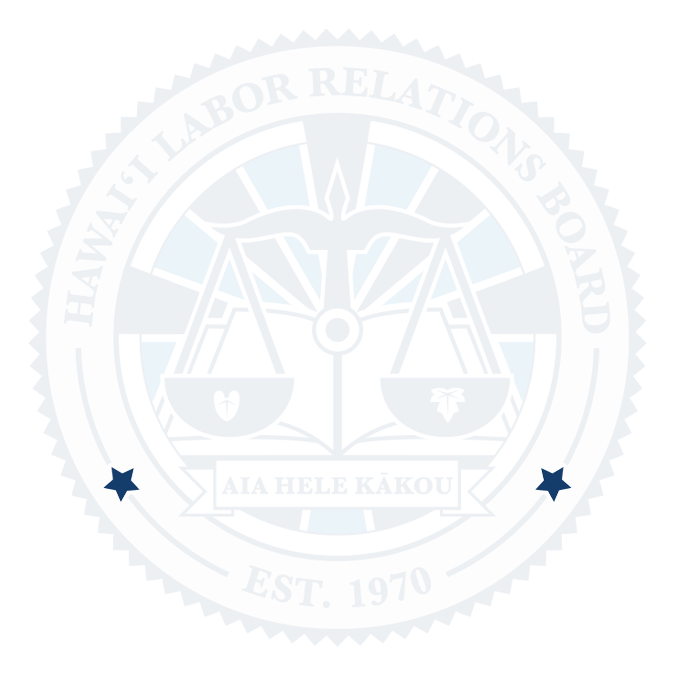
THE STAR OF BRILLIANCE
The stars symbolize traditional Polynesian wayfinding navigation and the reliance and importance of a voyages’ starting and ending points. The star is also representative of the State of Hawaii’s 50th star in the American flag.

